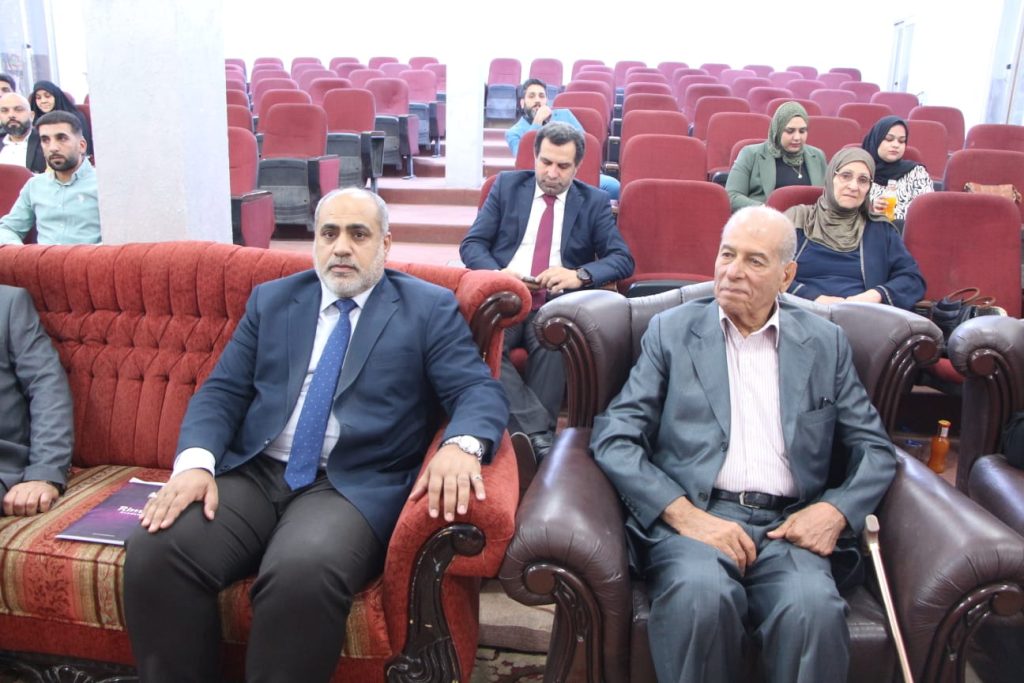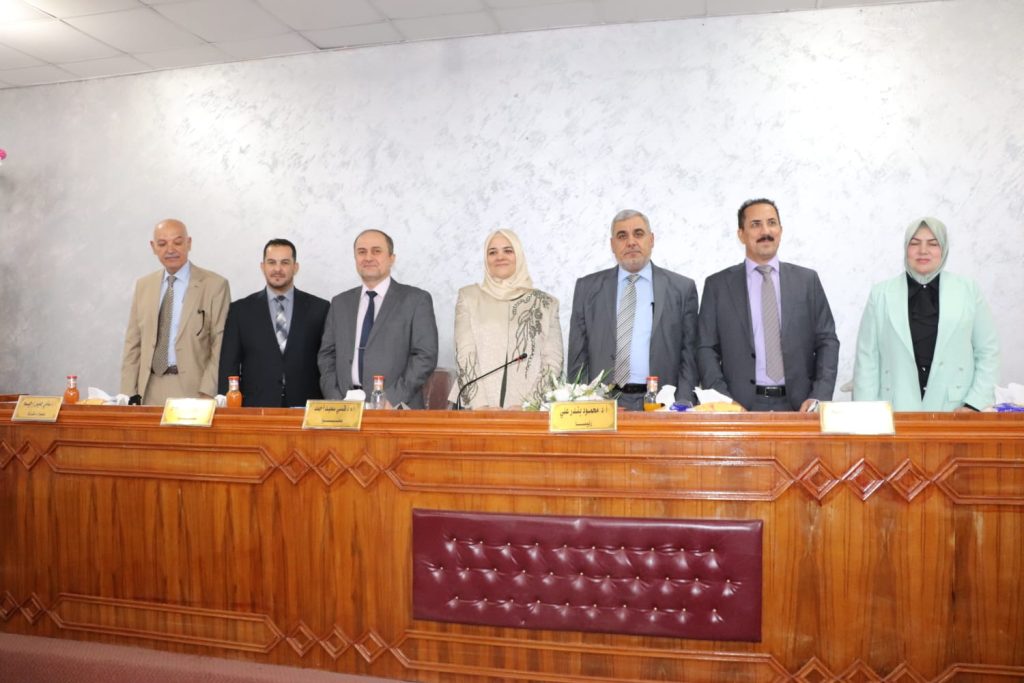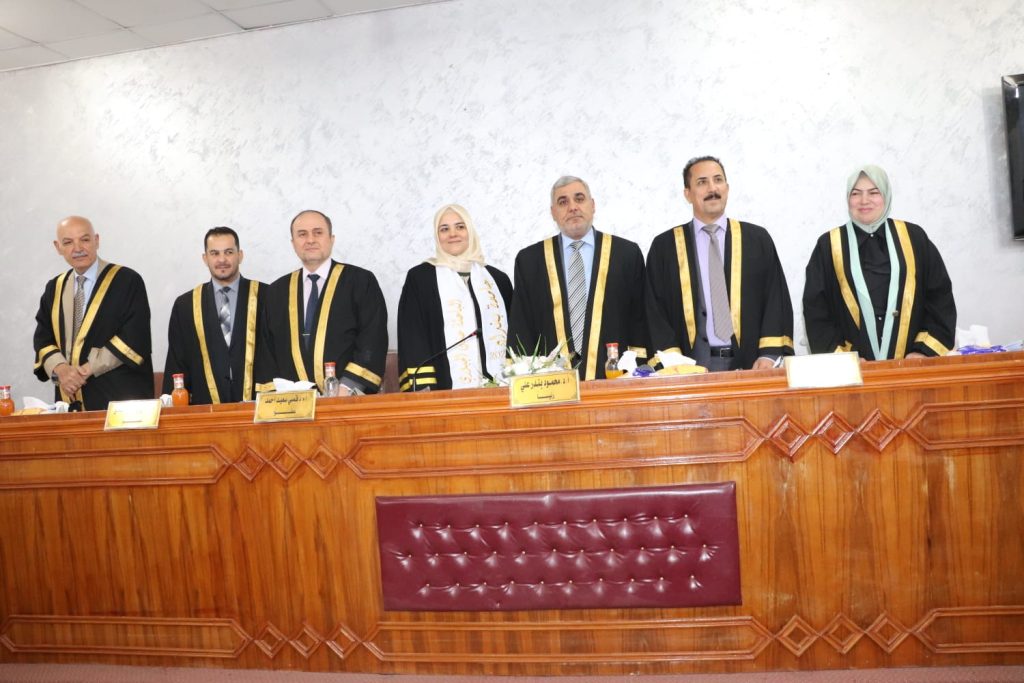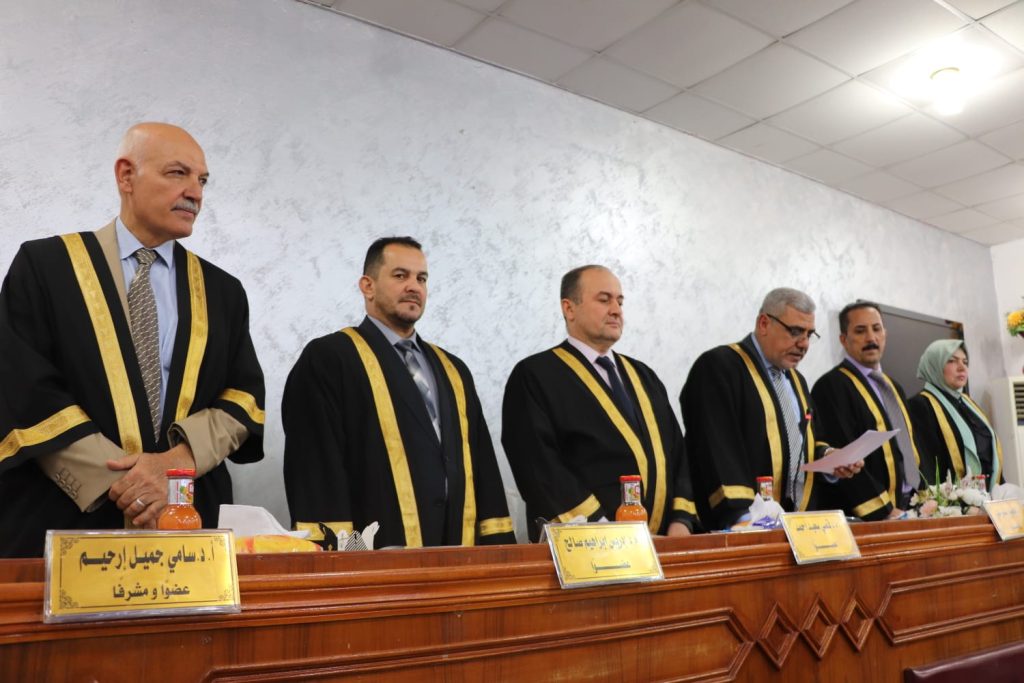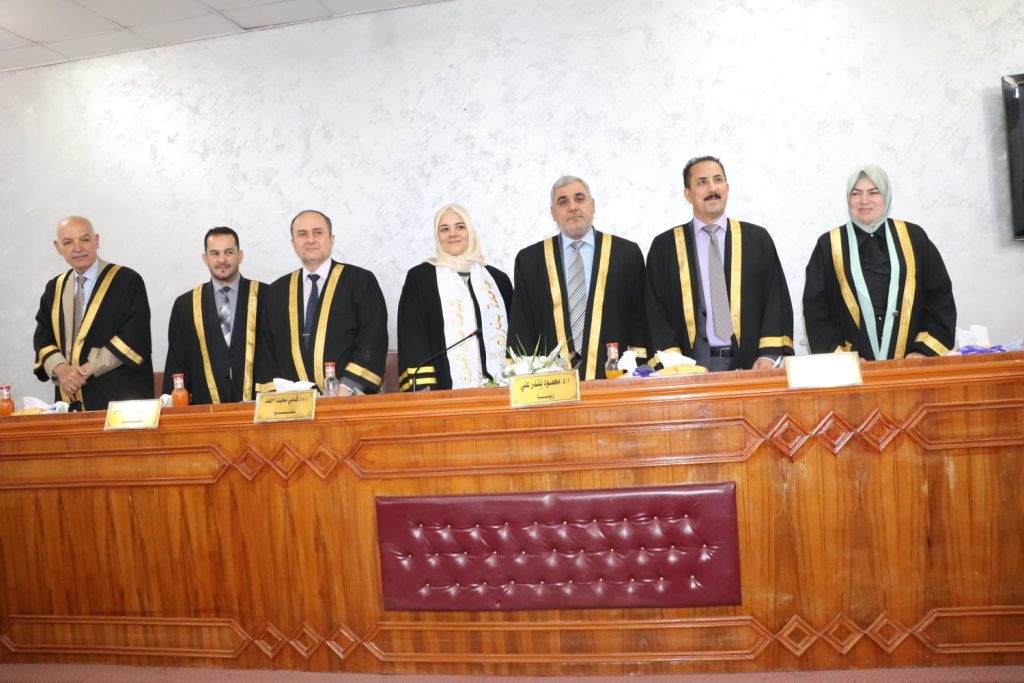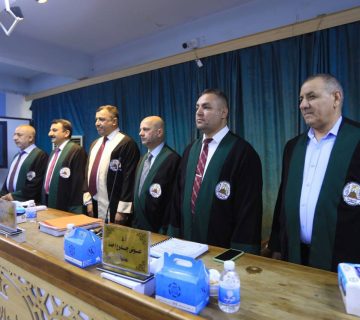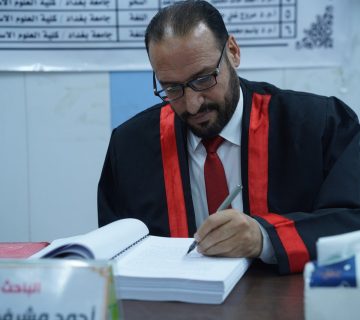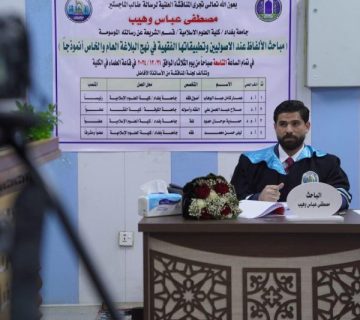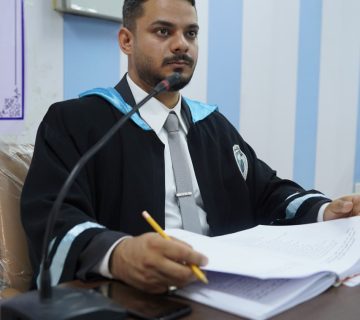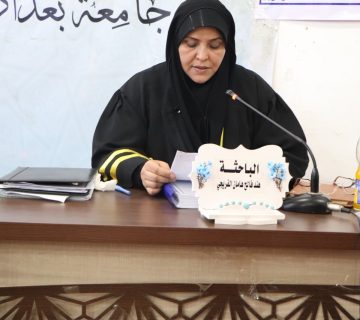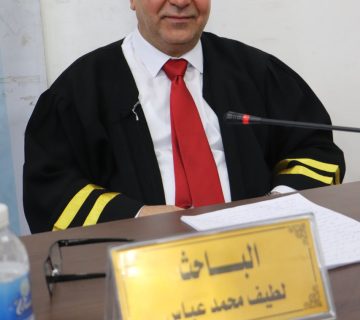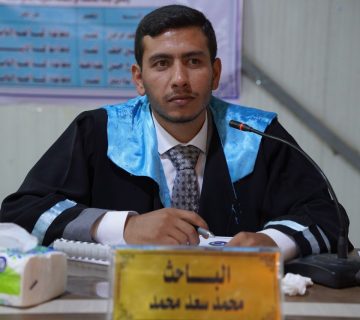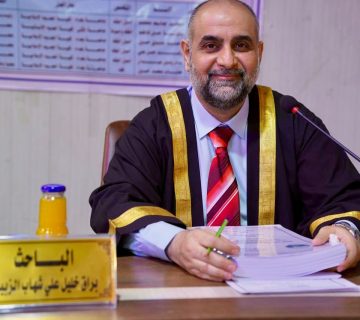The College of Islamic Sciences at the University of Baghdad discussed a thesis entitled “Jurisprudential Rulings Regarding Fetal Appendages in Islamic Legislation,” presented by the student Hanan Shakir Hamoud from the Department of Islamic Sharia, in the Al-Bayt Hall.
The significance of this thesis lies in its elucidation of the jurisprudential rulings on various matters related to fetal appendages, particularly as it has not been compiled into an independent work to the best of my knowledge. These matters encompass a wide range of topics, from purity to criminal offenses, spanning both traditional and contemporary sources. This reflects the comprehensive nature of Islamic Sharia, its adaptability to every innovation, and its suitability for every generation, addressing the diverse needs and requirements of society. Islamic jurisprudence is characterized by its strength, flexibility, and capacity to adapt to emerging developments and changes, regardless of their nature.
The thesis yielded a number of results and recommendations, with the most prominent being that Hanafi jurists did not mention the term “placenta” explicitly in their texts. Instead, they discussed general rulings related to the distinct parts of the human and animal bodies, separating them from the placenta. This is because the matter of the placenta is considered a branch of the broader issue of the rulings pertaining to the structures of the organs and limbs. The placenta is severed from the newborn after its birth. In contrast, other jurists did mention the placenta and provided explanations of some of its rulings.
Upon close examination of the texts found in the jurisprudential books, it becomes clear that the jurisprudential definition of the placenta does not deviate from its linguistic meaning. According to their understanding, it is referred to as “the vessel of the newborn” or “the infant’s covering.” The dominant view is that the maximum duration of pregnancy is ten lunar months, which aligns with the opinion of Imami jurists in the Marjūh school. This view is also in line with the opinions of fetal specialists, as it accommodates all exceptional and rare cases.
The thesis was approved with a satisfactory evaluation by the examination committee, composed of Professor Dr. Mahmoud Bandar as the chairman, Professor Dr. Naseef Mohsen, Dr. Sanaa Aliwi, Dr. Qusay Saeed, and Dr. Idris Ibrahim as members, with Professor Dr. Sami Jameel as the supervisor.
The Dean, Dr. Nama Dahsh Farhan, attended the defense, along with his administrative assistant, Dr. Arkhan Rahim Jabir, closely monitoring the academic proceedings
